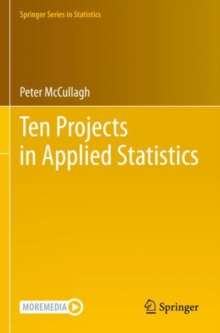
Linear Models and Generalizations : Least Squares and Alternatives PDF
by C. Radhakrishna Rao, Helge Toutenburg, Shalabh, Christian Heumann
Part of the Springer Series in Statistics series
Description
Thebookisbasedonseveralyearsofexperienceofbothauthorsinteaching linear models at various levels.
It gives an up-to-date account of the theory and applications of linear models.
The book can be used as a text for courses in statistics at the graduate level and as an accompanying text for courses in other areas.
Some of the highlights in this book are as follows. A relatively extensive chapter on matrix theory (Appendix A) provides the necessary tools for proving theorems discussed in the text and o?ers a selectionofclassicalandmodernalgebraicresultsthatareusefulinresearch work in econometrics, engineering, and optimization theory.
The matrix theory of the last ten years has produced a series of fundamental results aboutthe de?niteness ofmatrices,especially forthe di?erences ofmatrices, which enable superiority comparisons of two biased estimates to be made for the ?rst time.
We have attempted to provide a uni?ed theory of inference from linear models with minimal assumptions.
Besides the usual least-squares theory, alternative methods of estimation and testing based on convex loss fu- tions and general estimating equations are discussed.
Special emphasis is given to sensitivity analysis and model selection.
A special chapter is devoted to the analysis of categorical data based on logit, loglinear, and logistic regression models.
The material covered, theoretical discussion, and a variety of practical applications will be useful not only to students but also to researchers and consultants in statistics.
Information
-
Download - Immediately Available
- Format:PDF
- Publisher:Springer Berlin Heidelberg
- Publication Date:15/10/2007
- Category:
- ISBN:9783540742272
Other Formats
- Hardback from £73.75
- Paperback / softback from £73.79
Information
-
Download - Immediately Available
- Format:PDF
- Publisher:Springer Berlin Heidelberg
- Publication Date:15/10/2007
- Category:
- ISBN:9783540742272










